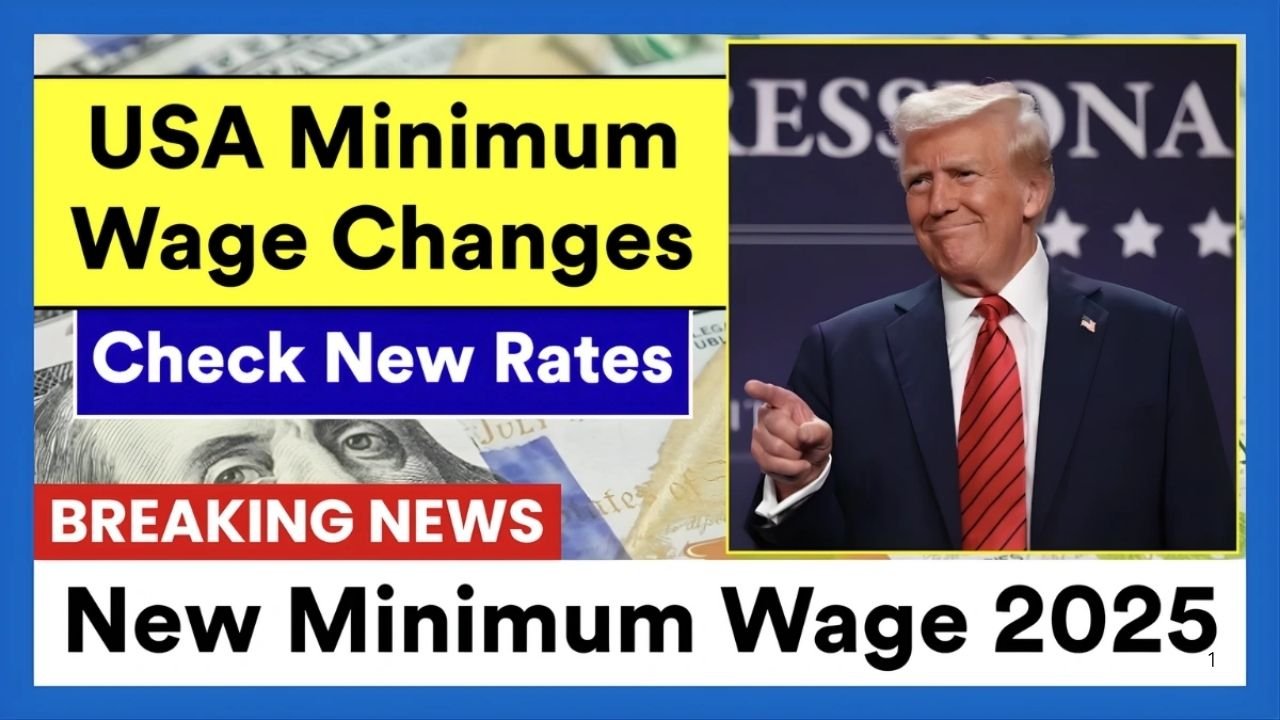As the cost of living continues to rise across the United States, many states are increasing their minimum wage in 2025 to help workers keep up with higher prices for rent, food, transportation, and basic essentials. While the federal minimum wage remains $7.25 per hour, more than half of all states now enforce higher wage standards—some reaching $15 to $17 per hour.
These updated wage laws aim to boost worker earnings, support families, and help employers retain skilled labor in a competitive job market. Here’s a simple breakdown of the new 2025 minimum wage rates and what workers can expect.
Why States Are Increasing Minimum Wages
States are raising minimum wages in response to several economic changes:
- Rising inflation and higher living costs
- Worker shortages in key industries
- State labor reforms and ballot measures
- Automatic yearly cost-of-living adjustments (COLA)
- Efforts to support low-income households and working families
Many states now use inflation-based formulas to update wages every year.
2025 State-by-State Minimum Wage Overview
Below is an easy reference table showing sample minimum wage updates for 2025. Actual rates may vary by city, county, employer size, and industry.
2025 Minimum Wage Table (Sample Overview)
| State | 2025 Minimum Wage (Hourly) |
|---|---|
| California | $16.00 – $17.00 |
| Washington | $16.28 |
| New York | $16.00 (higher in NYC) |
| Florida | $13.00 |
| Illinois | $15.00 |
| Colorado | $14.42 |
| New Jersey | $15.13 |
| Connecticut | $15.69 |
| Massachusetts | $15.00 |
| Texas | $7.25 (no state increase) |
Many other states—including Oregon, Arizona, Nevada, Minnesota, Virginia, and Hawaii—also have scheduled annual increases or cost-of-living adjustments throughout 2025.
What Workers Should Expect in 2025
When new wages take effect
Depending on state law, minimum wage increases may start on:
- January 1, 2025
- Mid-year dates (July or September)
- Automatic annual COLA updates
Cities like Seattle, Denver, and Los Angeles may also apply higher local wage rates.
What workers should do
- Check your state labor department for the final rates
- Review pay stubs to ensure your employer updates your wage
- Know your rights under city- and county-level wage laws
Employers must update payroll systems, schedules, and compliance postings to meet new legal requirements.
How Minimum Wage Increases Impact Households
Higher minimum wages help workers manage essential costs such as:
- Rent and utilities
- Groceries and transportation
- Childcare and medical expenses
Increased wages also boost local economies, as workers have more spending power. However, businesses may face higher labor costs, which could lead to:
- Increased prices in certain industries
- Reduced staff hours in some workplaces
- Adjusted hiring practices
Still, most economists agree that wage increases significantly benefit low-income families.
Frequently Asked Questions (FAQ)
1. Will every state increase its minimum wage in 2025?
No. Some states—like Texas, Georgia, and Wyoming—still follow the federal rate of $7.25 per hour.
2. Can cities set their own higher minimum wage?
Yes. Cities such as Seattle, San Francisco, Los Angeles, and New York City have higher local wage laws than their states.
3. Will the federal minimum wage increase in 2025?
As of now, no federal increase has been approved. Discussions continue, but no changes are official.
4. Do small businesses have different wage requirements?
In some states, yes. Certain wage laws differ based on employer size or number of employees.
5. How can workers check their correct wage?
Visit your state Department of Labor website or check updated workplace posters required by law.
Conclusion
Minimum wage changes in 2025 bring meaningful improvements for millions of workers across the United States. With higher living costs affecting almost every household, these updated hourly rates help support financial stability and boost local economies. Workers should stay informed, review their paychecks, and understand their state’s latest wage laws to ensure they receive the correct earnings.





